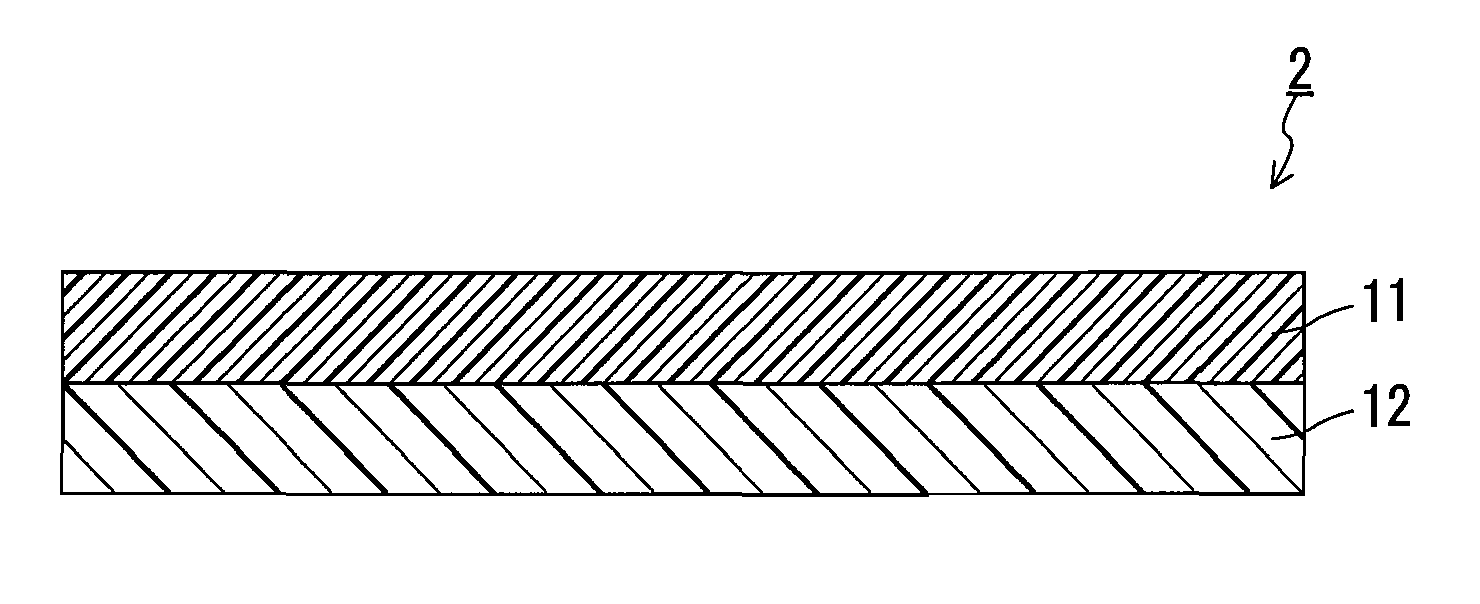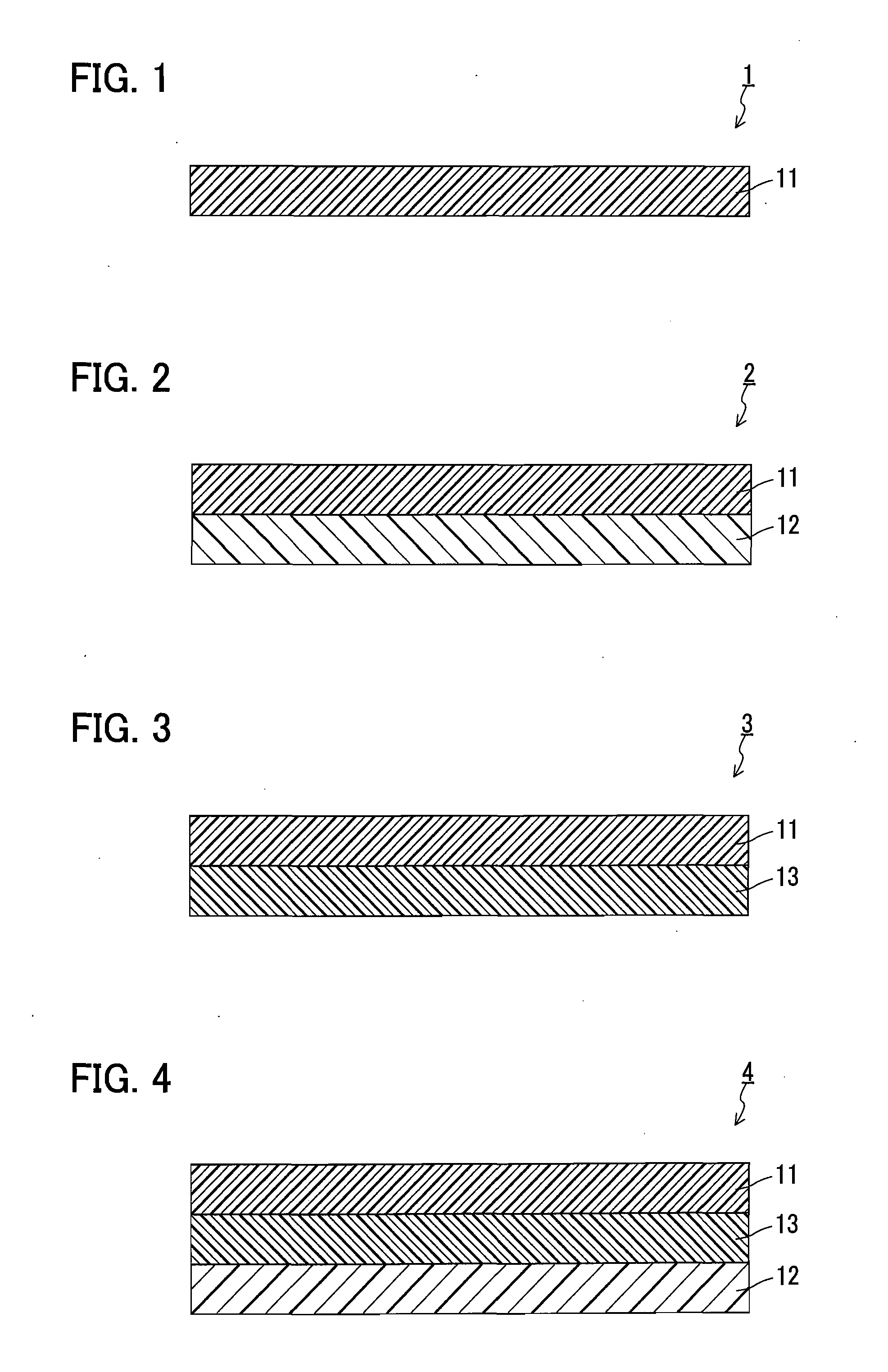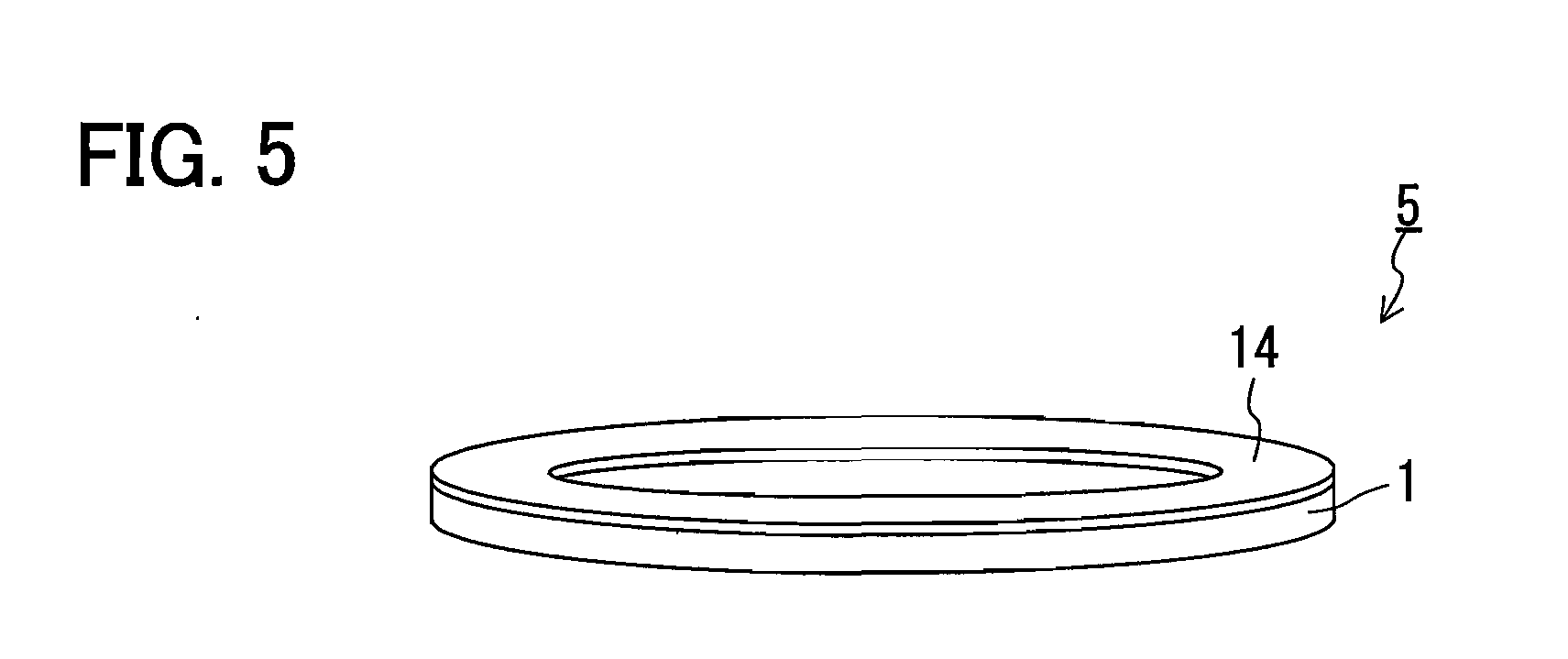Porous polytetrafluoroethylene membrane, method for producing the same, gas-permeable membrane and ventilation member using the same
a technology of porous polytetrafluoroethylene and gas-permeable membrane, which is applied in the direction of metal layered products, synthetic resin layered products, domestic applications, etc., can solve the problems of difficulty in forming a waterproof structure while ensuring audio functions, and the entry of liquids with a low surface tension cannot be fully prevented, so as to reduce wrinkles and sagging
- Summary
- Abstract
- Description
- Claims
- Application Information
AI Technical Summary
Benefits of technology
Problems solved by technology
Method used
Image
Examples
example 1
[0075]An amount of 100 parts by weight of a PTFE fine powder (F 104 manufactured by DAIKIN INDUSTRIES, LTD.) and 20 parts by weight of n-dodecane (manufactured by Japan Energy Corporation) serving as a forming aid were uniformly mixed. The obtained mixture was compressed using a cylinder, and then formed into a sheet-shaped mixture by ram extrusion. Next, the sheet-shaped mixture obtained was rolled to a thickness of 0.2 mm by passing the mixture through a pair of metal rolls. Furthermore, the mixture was dried by heating at 150° C. to remove the forming aid, and thus a sheet-shaped body of PTFE was obtained. Next, the sheet-shaped body obtained was stretched in the longitudinal direction (rolling direction) at a stretching temperature of 260° C. and at a stretching ratio of 10.
[0076]Next, the porous PTFE membrane fabricated as described above was immersed for several seconds in a dye solution obtained by mixing 20 parts by weight of a black dye (SP BLACK 91-L manufactured by ORIENT...
example 2
[0079]A liquid-repellent porous PTFE membrane subjected to liquid-repellent treatment (Example 2) was obtained in the same manner as in Example 1, except that the stretching ratio in the width direction was 15. The surface density of the liquid-repellent porous PTFE membrane of Example 2 was 4 g / m2. The elongation at break, sound pressure loss, gas permeability, waterproofness, and liquid repellency thereof are as shown in Table 1. The occurrences of wrinkling and sagging of the membrane during cutting, integration, and removal are as shown in Table 2.
example 3
[0080]A liquid-repellent porous PTFE membrane subjected to liquid-repellent treatment (Example 3) was obtained in the same manner as in Example 1, except that the stretching ratio in the width direction was 7. The surface density of the liquid-repellent porous PTFE membrane of Example 3 was 8.6 g / m2. The elongation at break, sound pressure loss, gas permeability, waterproofness, and liquid repellency thereof are as shown in Table 1. The occurrences of wrinkling and sagging of the membrane during cutting, integration, and removal are as shown in Table 2.
PUM
| Property | Measurement | Unit |
|---|---|---|
| elongation at break | aaaaa | aaaaa |
| pore diameter | aaaaa | aaaaa |
| pore diameter | aaaaa | aaaaa |
Abstract
Description
Claims
Application Information
 Login to View More
Login to View More - R&D Engineer
- R&D Manager
- IP Professional
- Industry Leading Data Capabilities
- Powerful AI technology
- Patent DNA Extraction
Browse by: Latest US Patents, China's latest patents, Technical Efficacy Thesaurus, Application Domain, Technology Topic, Popular Technical Reports.
© 2024 PatSnap. All rights reserved.Legal|Privacy policy|Modern Slavery Act Transparency Statement|Sitemap|About US| Contact US: help@patsnap.com










